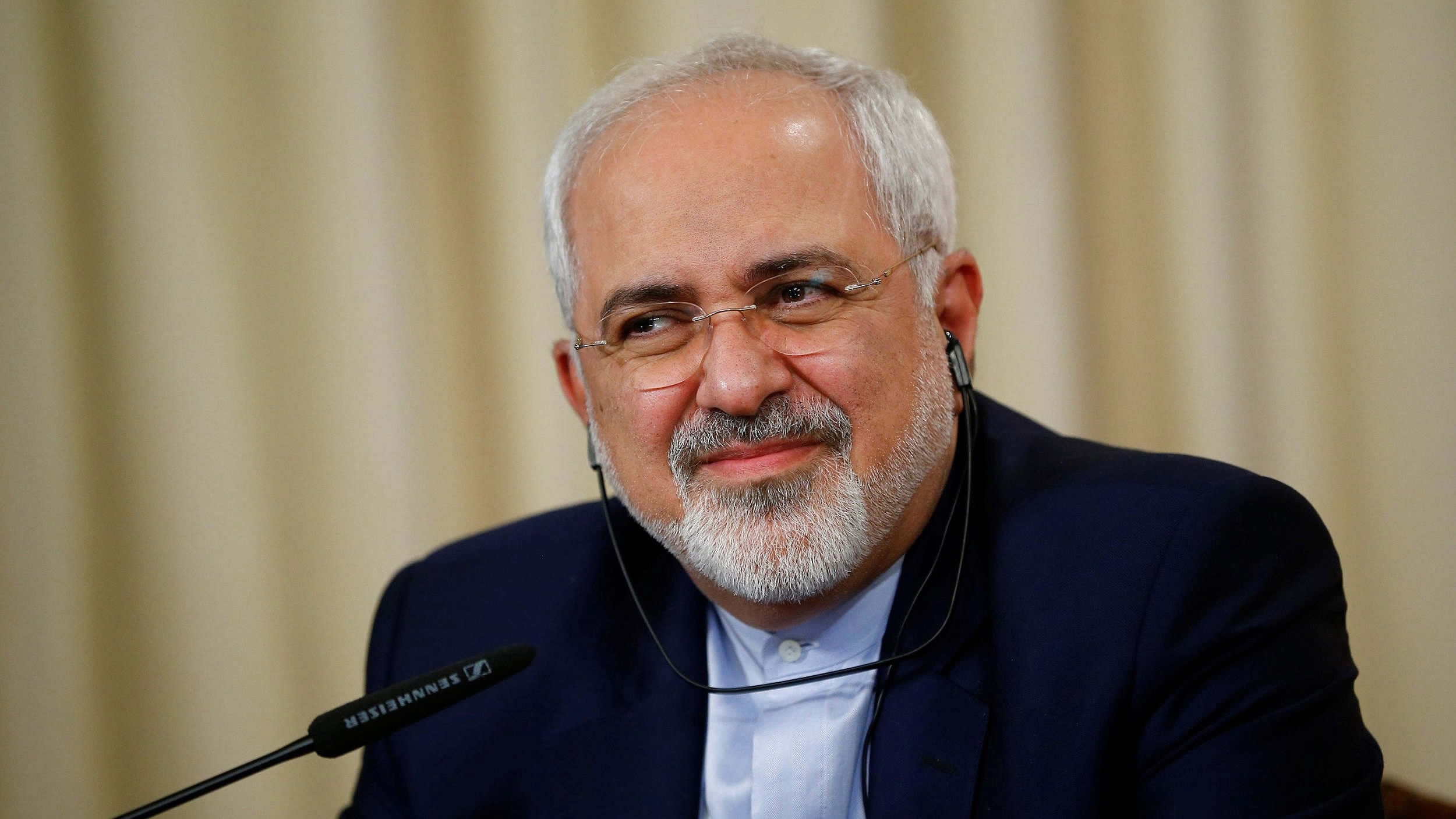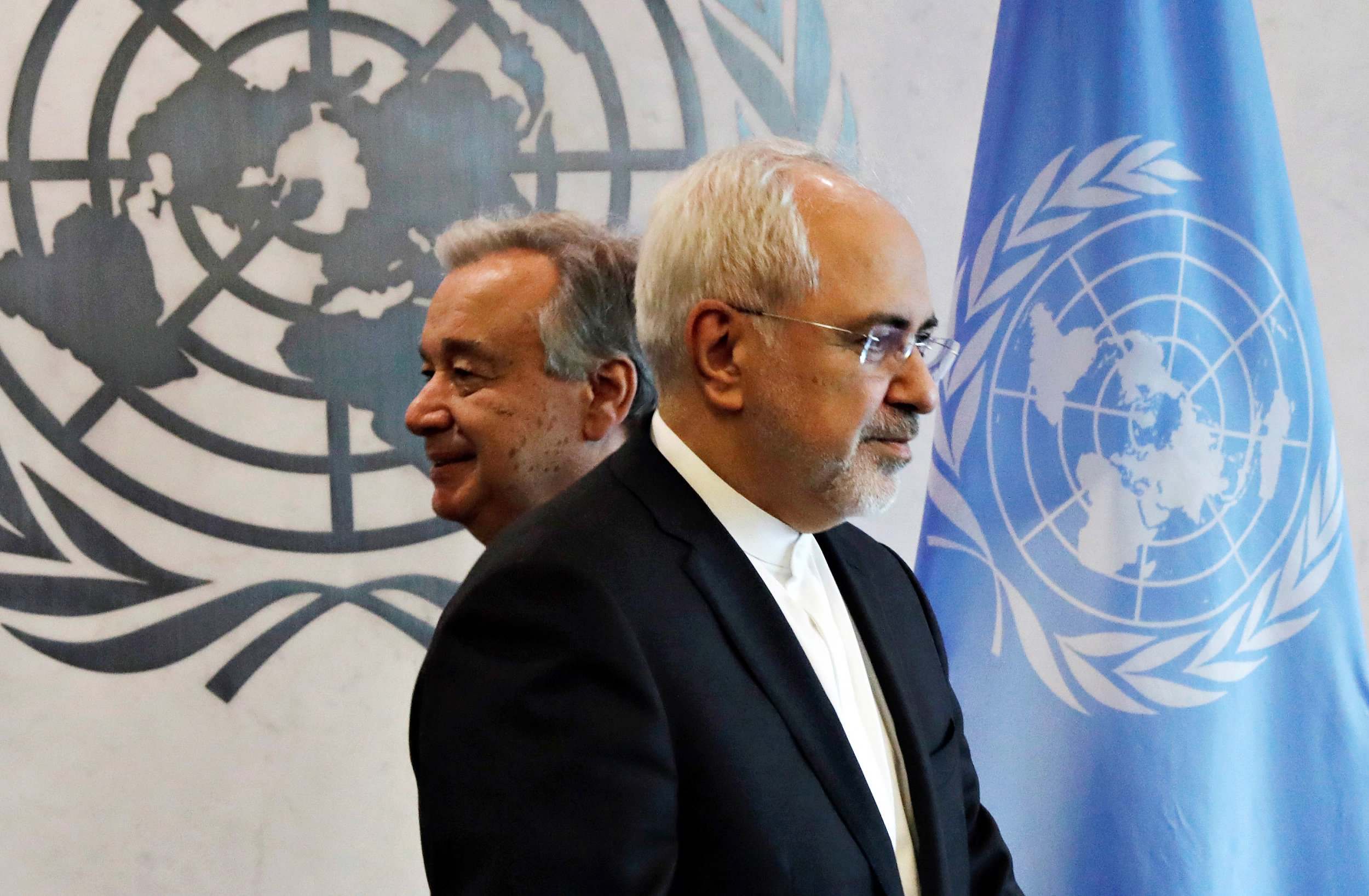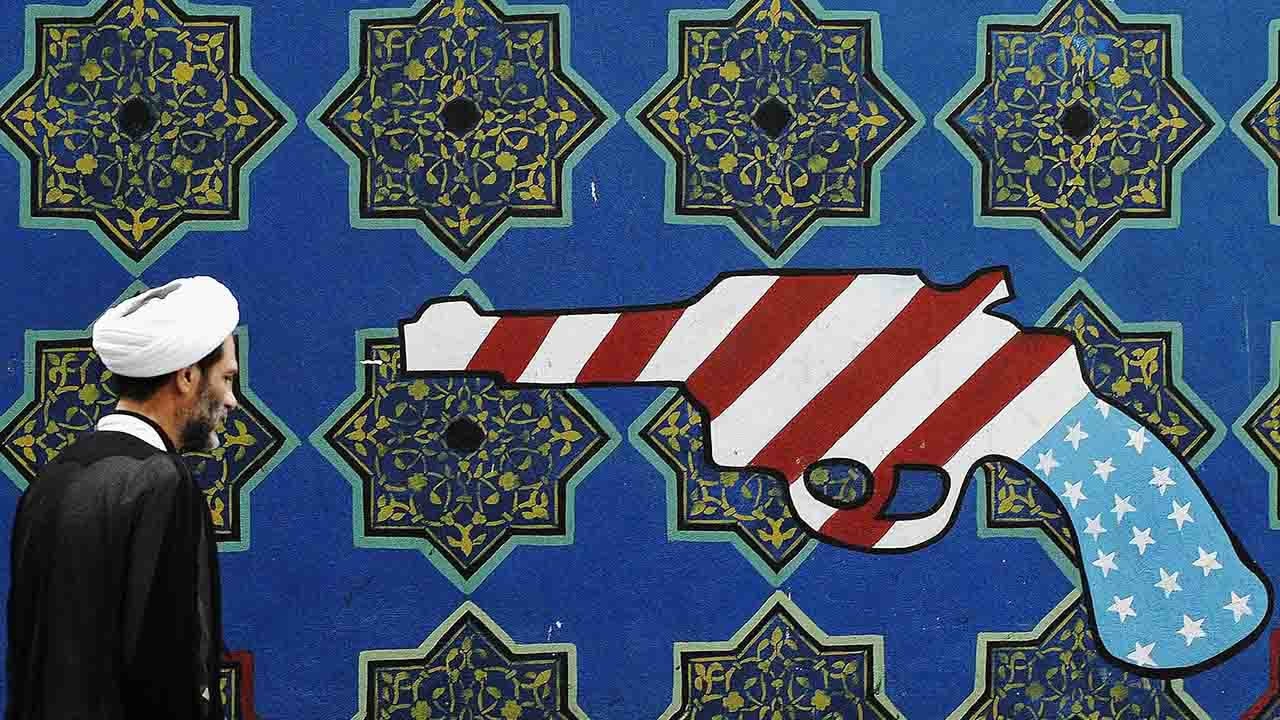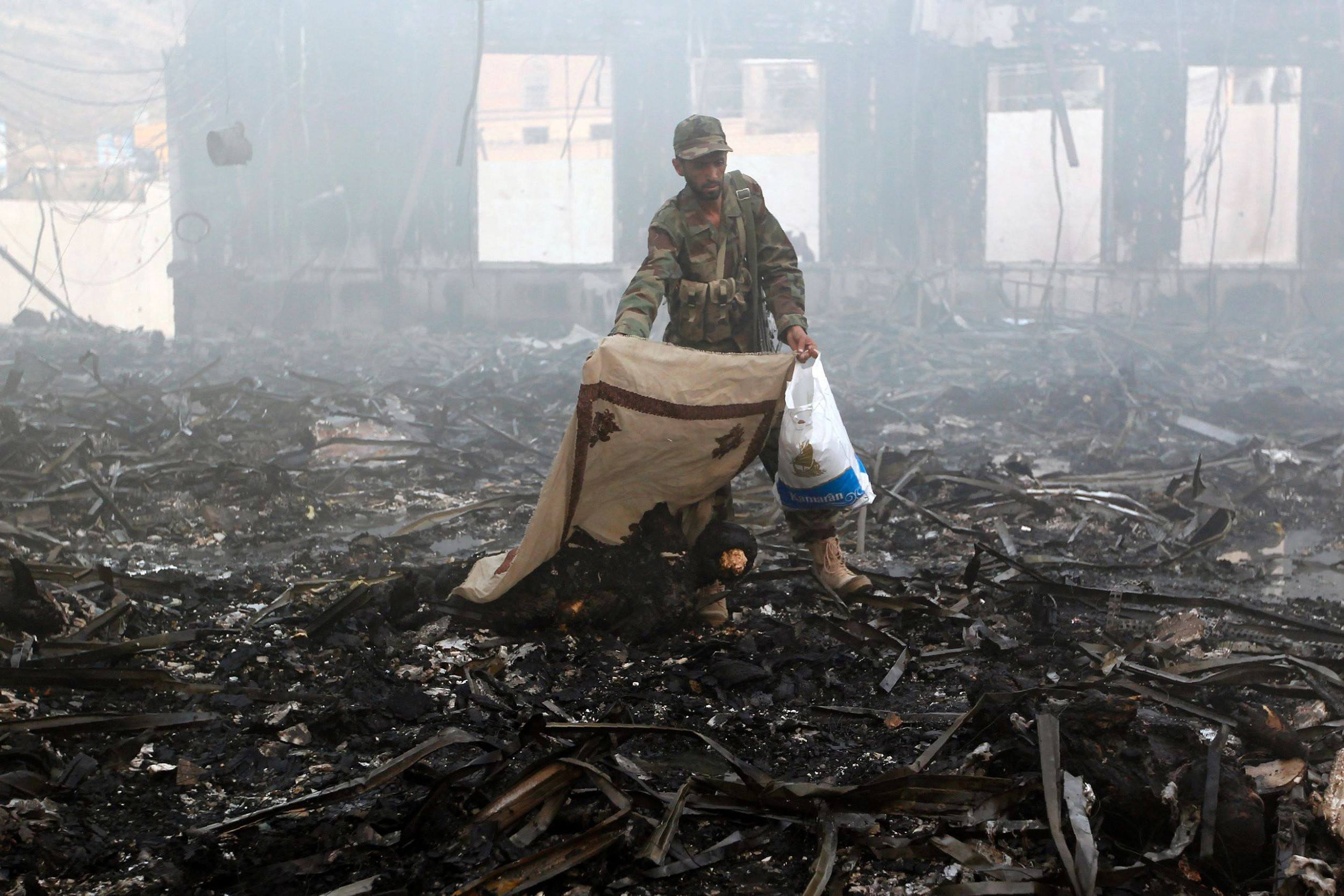
Politics
09:07, 18-Jul-2017
Zarif: Iran receives 'contradictory signals' from the US

The Iranian government has received "contradictory signals" from the Trump administration on the Iran nuclear deal, said the country's foreign minister Mohammad Javad Zarif on Monday.
"It's very clear that Iran is serious about the nuclear deal and we believe the nuclear deal can lay the foundation, not the ceiling," Zarif told the US think tank, the Council on Foreign Relations. He was in New York for a high-level UN meeting on sustainable development and to "see old friends."

Mohammad J. Zarif, Iranian Minister of Foreign Affairs, walks past UN Secretary General, Antonio Guterres at UN Headquarters in New York City, US on July 17, 2017. /VCG Photo
Mohammad J. Zarif, Iranian Minister of Foreign Affairs, walks past UN Secretary General, Antonio Guterres at UN Headquarters in New York City, US on July 17, 2017. /VCG Photo
He said the International Atomic Energy Agency (IAEA) has verified Iran's compliance with the 2015 agreement, but unfortunately the US has not complied.
US President Donald Trump pledged to scrap the nuclear agreement, which he described as "the worst deal ever", on his campaign trail, and in May ordered a review of the pact.
Under US law, the State Department must notify Congress every 90 days of Iran's compliance with the 2015 deal reached with world powers on curbing Iran's nuclear program.
As a legal deadline loomed on Monday, the Trump administration told Congress for a second time that Iran is complying with the nuclear deal and can keep enjoying sanctions relief, even as it insisted Tehran would face consequences for breaching "the spirit" of the deal.

Zarif said he hasn't communicated with US Secretary of State Rex Tillerson. But he added, "it doesn't mean that there can't be (communication), because the possibilities for engagement with regard to the nuclear deal have always been open."
He stressed that Iran was not designing missiles to carry nuclear warheads, which is banned under the nuclear deal, and that the country's missiles were only for self-defense.
"We need them to make sure that another Saddam Hussein around the corner will not come and hit us again," he said.
Representatives from the five nuclear powers - China, Russia, France, Britain, and the US, plus Germany will meet in Vienna on Friday to take stock of the deal.
Zarif said they would discuss Iran's complaints about non-US compliance, accusing the US administration of failing to lift sanctions in line with the deal.
Any move by the US Congress to re-impose sanctions on Iran would "of course" be "a violation" of the nuclear deal, Zarif said, but he did not say what Tehran's response would be to such legislation.
Iran hopes no direct confrontation with Saudi
When asked if he was worried about direct confrontation between Tehran and Riyadh, Zarif said: "We certainly hope not ... We don't have to fight; we don't need to fight. We don't need to try to exclude each other from the scene in the Middle East."

This file photo taken on October 08, 2016 shows a Yemeni man covering a charred body amid the rubble of a destroyed funeral hall building following reported airstrikes by Saudi-led coalition airplanes on the capital Sanaa. /VCG Photo
This file photo taken on October 08, 2016 shows a Yemeni man covering a charred body amid the rubble of a destroyed funeral hall building following reported airstrikes by Saudi-led coalition airplanes on the capital Sanaa. /VCG Photo
Zarif called the current fighting in Yemen the "worst humanitarian nightmare you can think of".
"We certainly hope that if we don't agree with each other about the situation in Yemen or about the situation in Syria we can still work with each other in order to bring those situations to an end," he noted.
A Saudi Arabia-led coalition intervened in Yemen's civil war in 2015, backing government forces fighting Iran-allied Houthi rebels. Saudi Arabia and Iran compete for influence in the Middle East, also supporting rival groups in Syria's civil war.
11001km

SITEMAP
Copyright © 2018 CGTN. Beijing ICP prepared NO.16065310-3
Copyright © 2018 CGTN. Beijing ICP prepared NO.16065310-3